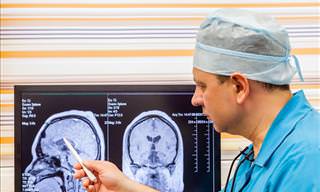One of the most common New Year resolutions is Dry January. After a December filled with alcohol-filled holiday parties and gatherings, many of us want to start the New Year with a booze-detox in order to feel refreshed. But can abstaining from alcohol for 30 days actually make a difference? Health experts claim it does! Being alcohol-free for one month has proven health benefits, mainly for those who are considered ‘heavier drinkers’.
The recommended consumption of alcohol would be up to 1 drink per day for women and up to 2 drinks for men. If your consumption is normally within that limit, the health benefits of Dry January may be less pronounced for you (in fact, drinking alcohol in moderation has a positive effect on psychological well-being and cardiovascular health).
If you feel you are exceeding the recommended amount of alcohol per day or just feel up to the challenge, here are the health benefits of cutting alcohol for 30 days.
1. Liver Relief
It is well known that the liver is the organ that suffers the most damage from excessive drinking. The good news is the liver has the ability to regenerate and heal, so the damage is reversible. It will take a few weeks, but once you stop drinking in excess liver fats will dissolve. Moreover, when the liver isn’t busy metabolizing alcohol, it can focus on other toxins in your body that need to be broken down.
2. Reduced Risk of Certain Types of Cancer
The consumption of alcohol has been linked with a higher risk of a few types of cancer; namely breast, liver colorectal, head and neck, and esophageal cancer. Naturally, the less you drink the more chances of getting sick are decreased.
3. Balanced Eating Habits
On top of alcoholic drinks having high calories, alcohol also boosts your appetite. Saying no to those fries will no doubt be more difficult after you’ve had a few drinks. The reason for this is, according to a study published in the Journal of Obesity in 2015, alcohol heightens the senses. Even a mild intoxication will increase your brain activity in the hypothalamus, thus making you more sensitive to the smell of food and likely to eat more.
4. Better Sleep
Alcohol is a depressant, so it slows down your body and can make you feel drowsy. However, once you are asleep your slumber is likely to be disrupted by it, as your body is working overtime to metabolize it. Once it is all metabolized, you may wake up abruptly, interfering with the important REM stage of sleep.
5. Boost in Brain Activity
Drinking alcohol has an immediate effect on brain structure. It blocks signals between neurons, causing the immediate symptoms of intoxication: impulsive behavior, slurred speech, poor memory, and slowed reflexes. When drinking more than the recommended amount on a regular basis, brainpower may suffer more prolonged damage, like problems with verbal fluency, memory, attention, and perception of distances.
Taking a break from drinking gives your brain a chance to recover and regain those abilities.
6. Decreased Risk of Heart Disease
Heavy drinking is known to produce many free radicals, which oxidize bad cholesterol (LDL). When LDL is oxidized it can form a blockage on the carotid arteries. Blockage in the carotid arteries is a serious cardiovascular problem. On the other hand, drinking in moderation (for example, a glass of wine once or twice a week) does not have any effect on LDL; on the contrary. It increases good cholesterol (HDL).
Limiting your alcohol intake is important to cardiovascular health, and to attain even better results you can add a workout to your routine of course.
Like everything else in life, the keyword with alcohol consumption is moderation. If you're not interested in quitting altogether but do want to cut back, the 30-day challenge is an excellent way to start.
 Go to BabaMail
Go to BabaMail

























































